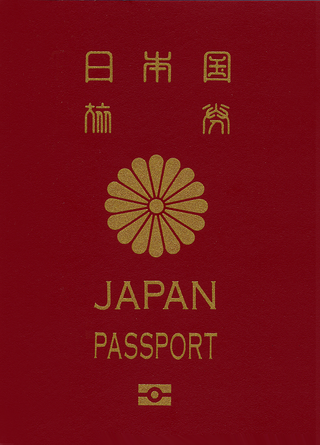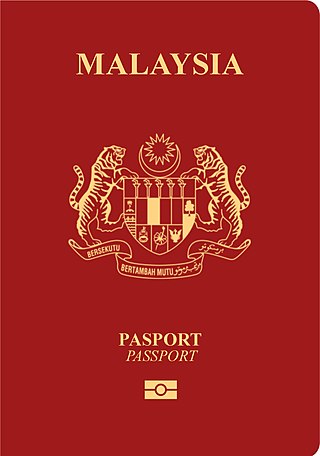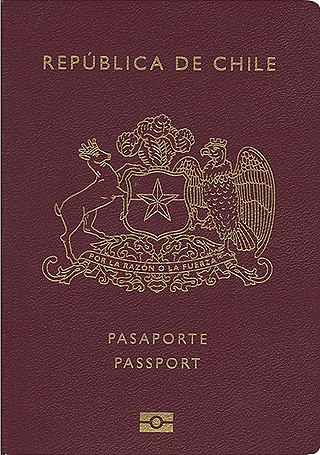Related Research Articles
The Bureau of Consular Affairs (CA) is a bureau of the United States Department of State reporting to the under secretary of state for management. The mission of the Bureau is to administer laws, formulate regulations and implement policies relating to the broad range of consular services and immigration. As of 2021, the bureau is headed by the Assistant Secretary of State for Consular Affairs, Rena Bitter.
The EINSTEIN System is a network intrusion detection and prevention system that monitors the networks of US federal government departments and agencies. The system is developed and managed by the Cybersecurity and Infrastructure Security Agency in the United States Department of Homeland Security (DHS).

Visa requirements for Romanian citizens are the administrative entry restrictions by the authorities of other territories affecting citizens of Romania. As of May 2024, Romanian citizens had visa-free or visa on arrival access to 179 countries and territories, ranking the Romanian passport 15th in terms of travel freedom, according to the Henley Passport Index.

Visa requirements for Japanese citizens are administrative entry restrictions by the authorities of other states placed on citizens of Japan.

Visa requirements for Indian citizens are administrative entry restrictions by the authorities of other states placed on citizens of India.

Visa requirements for Chinese citizens are administrative entry restrictions imposed on citizens of China residing in the Mainland by the authorities of other states.

Visa requirements for French citizens are administrative entry restrictions by the authorities of other states placed on citizens of France.

Visa requirements for Italian citizens are administrative entry restrictions by the authorities of other states placed on citizens of Italy.

Visa requirements for Malaysian citizens are administrative entry restrictions by the authorities of other states placed on citizens of Malaysia.

Visa requirements for Mexican citizens are administrative entry restrictions by the authorities of other states placed on citizens of Mexico

Visa requirements for Argentine citizens are administrative entry restrictions by the authorities of other states placed on citizens of Argentina.

Visa requirements for Brazilian citizens are administrative entry restrictions by the authorities of other states placed on citizens of Brazil.

Visa requirements for Chilean citizens are administrative entry restrictions by the authorities of other states placed on citizens of Chile entering with a Chilean passport.

Visa requirements for Moldovan citizens are administrative entry restrictions imposed on citizens of Moldova by the authorities of other states.

Visa requirements for Singapore citizens are administrative entry restrictions by the authorities of other states which are imposed on citizens of Singapore.

Visa requirements for Chinese citizens of Macau are administrative entry restrictions by the authorities of other states placed on Chinese citizens who are permanent residents of Macau.
Visa requirements for British Nationals (Overseas) are administrative entry restrictions by the authorities of other states and territories placed on British National (Overseas) passport holders. Several million people, the vast majority with a Hong Kong connection, hold this passport.

Visa requirements for Dominican Republic citizens are administrative entry restrictions by the authorities of other states placed on citizens of the Dominican Republic. Along with Cuba and Haiti the Dominican republic passport is considered the weakest passport in Latin America for traveling. Despite several promises by the Government the Dominican Republic still doesn't have the biometric passport.

Systematic Alien Verification for Entitlements (SAVE) is a program managed by United States Citizenship and Immigration Services (USCIS), a branch of the U.S. Department of Homeland Security (DHS). SAVE facilitates lookups on the immigration and nationality status of individuals in the United States. It is an intergovernmental initiative designed to help federal, state, tribal, and local government agencies, or by a contractor acting on the agency's behalf, to determine eligibility for benefits, licenses or grants, government credentials, or to conduct background investigations. It is one of two programs that uses the Verification Information System (VIS). The other program is the Electronic Employment Eligibility Verification Program, also known as E-Verify, and is used by employers to verify the immigration status of employees. For additional verification, SAVE relies on the Person Centric Query System (PCQS).
The Consular Lookout and Support System (CLASS) is a system supporting the U.S. Department of State Bureau of Consular Affairs: it assists in decisions for visa and passport issuance and helps establish a person's eligibility for overseas services. It is used by U.S. Department of State passport agencies and consular posts as well as U.S. Department of Homeland Security and other border inspection agencies to perform namechecks on visa and passport applicants to identify individuals who may be ineligible for issuance or require other special action. Potential reasons for ineligibility include past criminal or terrorist activity.
References
- 1 2 3 "Privacy Impact Assessment (PIA) Consular Consolidated Database (CCD)" (PDF). United States Department of State. July 17, 2015. Retrieved November 21, 2017.
- 1 2 3 Levine, Mike; Fishel, Justin (March 31, 2016). "EXCLUSIVE: Security Gaps Found in Massive Visa Database". ABC News . Retrieved November 21, 2017.
- 1 2 "Homeland Security – US Consular Consolidated Database vulnerable to cyber attacks". Security Affairs. April 6, 2016. Retrieved November 21, 2017.
- 1 2 3 4 5 6 7 Wasem, Ruth Ellen (November 18, 2015). "Immigration: Visa Security Policies" (PDF). Congressional Research Service . Retrieved November 21, 2017.
- 1 2 "Information Regarding Ongoing Consular Consolidated Database (CCD) Performance Issues and Steps Taken". United States Department of State Bureau of Consular Affairs. August 4, 2014. Retrieved November 21, 2017.
- 1 2 3 "Consular Consolidated Database (CCD) Privacy Impact Assessment (PIA)" (PDF). United States Department of State. March 22, 2010. Retrieved November 22, 2017.
- 1 2 3 Rockwell, Mark (July 24, 2014). "State's passport and visa system crashes" . Retrieved November 22, 2017.
- 1 2 3 Grafeld, Margaret P. (December 11, 2008). "Privacy Impact Assessment: Consular Consolidated Database" (PDF). United States Department of State . Retrieved November 22, 2017.
- 1 2 Lyngaas, Sean (October 20, 2014). "Understanding State's big database crash: Q&A with Greg Ambrose. The department's director of consular systems and technology explains what happened this summer, and how his office is trying to prevent a repeat" . Retrieved November 21, 2017.